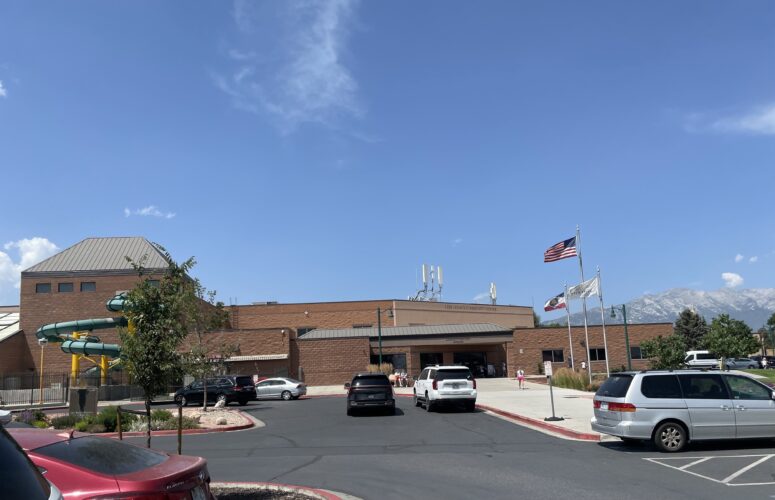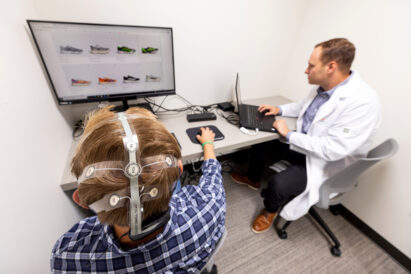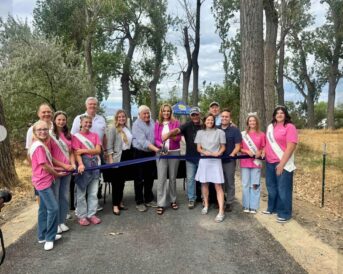Eagle Mountain says funds from proposed RAP tax won’t fund a recreation center

Curtis Booker, Daily Herald
The outside of the Legacy Center in Lehi on Wednesday, July 16, 2025. The Legacy Center is currently the closest recreation center to both Eagle Mountain and Saratoga Springs.Ahead of a vote by the Eagle Mountain City Council in August that could place a Recreation, Arts, and Parks (RAP) tax proposal on the November 2025 ballot, the city is clearing up a misconception regarding what funds from the tax cannot fund.
As the Daily Herald reported last month, Eagle Mountain leaders said they are considering the measure and, if approved by voters, would implement a dedicated funding source for community-enhancing projects like trails, parks, splash pads, arts programming, youth sports, and local cultural events.
However, city officials are making it clear that the tax will not fund a recreation center.
“A rec center may be something the public and council consider in the future, but it’s not something we’re pursuing now,” Eagle Mountain City Manager Benjamin Reeves said in a city-issued media release Tuesday. “We don’t want to lose the RAP Tax over a misunderstanding. It would be a significant loss for our community.”
The recreation, arts and parks tax, or RAP, is a 0.1% local sales tax that cities can use to fund various items and projects, which is roughly one cent for every $10 spent, or 10 cents for every $100 spent, on qualifying purchases within the respective city limits.
Eagle Mountain leaders project that the tax could generate around $600,000 each year annually. If approved by voters in November, a RAP tax advisory board would be established to work with the City Council to review, approve and award funding to eligible municipal and public entities for cultural and recreation opportunities.
“These funds would be legally restricted and cannot be used for general city operations, nor will they provide sufficient funding for large-scale construction projects like a recreation center,” the release states.
Eagle Mountain city leaders say that a recreation center would require significant upfront costs, likely through bonds associated with property taxes, and long-term operational budgets that typically rely on user fees.
The idea of building a recreation center in Eagle Mountain has been a frequent topic for more than a decade.
Residents in Eagle Mountain have longed for the city to fund its own rec center. The city attempted to work towards that goal by proposing a $7 million aquatic center in 2010, but residents voted against it.
Eagle Mountain tried another approach in 2018.
The Daily Herald reported at the time that the city was considering a plan to build an $5.2 million aquatic center, which would be the first in a multiphase project, and would eventually progress to include a fitness and exercise space, a gymnasium, and a competition pool.
That plan also has yet to come to fruition.
In a November 2019 podcast, Mayor Tom Westmoreland, along with then city administrator Ifo Pili, discussed the implications of finding creative ways to build a recreation center that can support a growing community without being a burden on tax payers.
The city had considered crowdfunding to cover some of the costs at one point after a majority of residents who responded to a February 2018 city survey said they’d be willing to contribute up to $250 towards needed funds for the effort.
Currently, neither Eagle Mountain nor neighboring Saratoga Springs have their own recreation center.
The closest is the Legacy Center in Lehi, which charges roughly an additional 8% in fees to non-residents who use the facility.
Tyler Maffitt, communications manager for Eagle Mountain, said that while a recreation center remains a popular request amongst residents, the city is eyeing other needs at this time.
“The City is prioritizing the enhancement of roads and regional transportation improvements, continued development of water and sewer infrastructure, and working to meet the community’s demand for energy solutions,” he told the Daily Herald, in a statement Wednesday afternoon.
Maffitt reiterated that Eagle Mountain could revisit the opportunity to build a rec center sometime in the future, but it won’t be through the RAP tax funding mechanism.
Despite the presence of a recreation center in Eagle Mountain, Reeves said the RAP Tax still provides a greater opportunity to invest in the city’s quality of life without compromising essential services or raising property taxes.
“When council members have to choose between adding three police officers or putting that same $600,000 into parks, they’re almost always going to choose public safety,” he said. “That means parks, trails, and arts programming often fall to the bottom of the budget. The RAP Tax solves that by creating an alternative revenue source with dedicated funds that can’t be diverted to other city priorities.”
The Eagle Mountain City Council is expected to make a final vote to place the measure on the November ballot next month.



